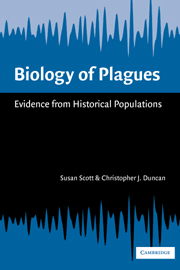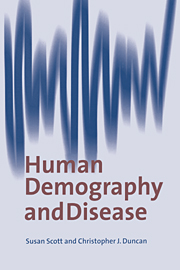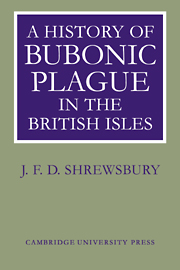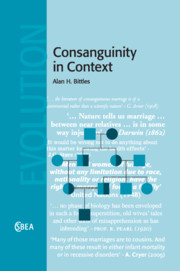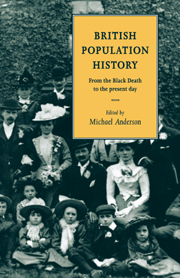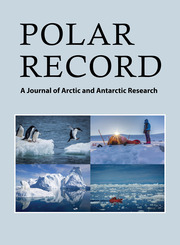Biology of Plagues
Evidence from Historical Populations
NZD$101.95 inc GST
- Authors:
- Susan Scott, University of Liverpool
- Christopher J. Duncan, University of Liverpool
- Date Published: September 2005
- availability: Available
- format: Paperback
- isbn: 9780521017763
NZD$
101.95
inc GST
Paperback
Other available formats:
Hardback, eBook
Looking for an inspection copy?
Please email [email protected] to enquire about an inspection copy of this book
-
The threat of unstoppable plagues, such as AIDS and Ebola, is always with us. In Europe, the most devastating plagues were those from the Black Death pandemic in the 1300s to the Great Plague of London in 1665. For the last 100 years, it has been accepted that Yersinia pestis, the infective agent of bubonic plague, was responsible for these epidemics. This book combines modern concepts of epidemiology and molecular biology with computer-modelling. Applying these to the analysis of historical epidemics, the authors show that they were not, in fact, outbreaks of bubonic plague. Biology of Plagues offers a completely new interdisciplinary interpretation of the plagues of Europe and establishes them within a geographical, historical and demographic framework. This fascinating detective work will be of interest to readers in the social and biological sciences, and lessons learnt will underline the implications of historical plagues for modern-day epidemiology.
Read more- Integrated and novel approach to the study of plague epidemics past and present
- Links epidemiology and computer-modelling with historical records to show that Black Death and the Great Plague of London could not have been due to bubonic plague
- Interdisciplinary study of interest to both social and biological sciences
Reviews & endorsements
'Biology of Plagues is a fascinating read for those interested in the history of infectious disease and it is provocative and thought provoking.' Richard W. Titball, The Lancet
See more reviews' … the authors of this challenging book are to be commended for bringing together much fascinating information about plagues.' The Times Higher Education Supplement
'Filled with scientific and historical data, Biology of Plagues will provide ample fodder for not only historians and sciences interested in the study of historic epidemics, but also for modern day public health experts who not only have to deal with current outbreaks, but also future outbreaks of both well-known and novel diseases.' Anna Dogole, History in Review (historyinreview.org)
Customer reviews
Not yet reviewed
Be the first to review
Review was not posted due to profanity
×Product details
- Date Published: September 2005
- format: Paperback
- isbn: 9780521017763
- length: 436 pages
- dimensions: 228 x 153 x 24 mm
- weight: 0.656kg
- contains: 121 b/w illus. 18 tables
- availability: Available
Table of Contents
1. Introduction
2. Epidemiological concepts
3. The biology of bubonic plague
4. The Great Pestilence
5. Case study: the plague at Penrith in 1597–98
6. Pestilence and plague in the 16th century in England
7. Plagues in the 16th century in northern England: a metapopulation study
8. Plagues in London in the 17th century
9. Plagues in the provinces in the 17th century
10. Plague at Eyam in 1665–66: a case study
11. Continental Europe during the third age of plagues: a study of large-scale metapopulation dynamics
12. The Plague at Marseilles, 1720–22: an outbreak of bubonic plague? 13. Conclusions
References
Index.
Sorry, this resource is locked
Please register or sign in to request access. If you are having problems accessing these resources please email [email protected]
Register Sign in» Proceed
You are now leaving the Cambridge University Press website. Your eBook purchase and download will be completed by our partner www.ebooks.com. Please see the permission section of the www.ebooks.com catalogue page for details of the print & copy limits on our eBooks.
Continue ×Are you sure you want to delete your account?
This cannot be undone.
Thank you for your feedback which will help us improve our service.
If you requested a response, we will make sure to get back to you shortly.
×
